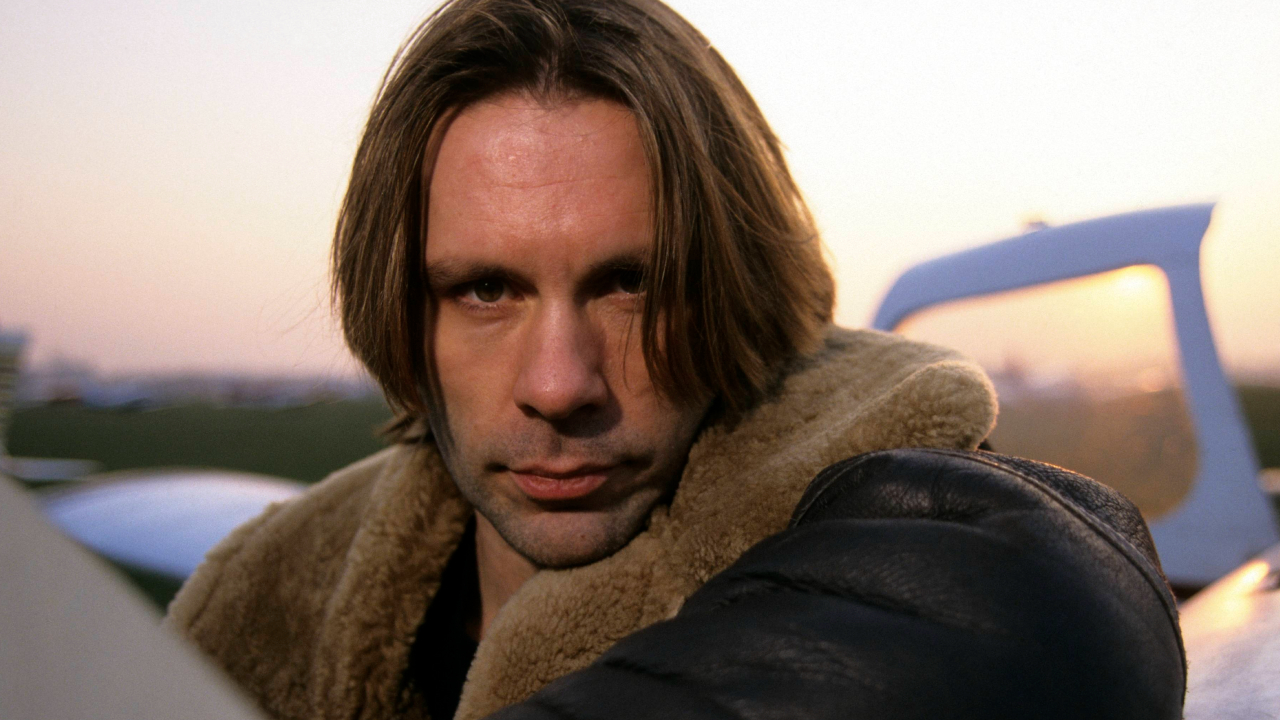“People on their mobiles, getting bombarded with this information – it’s kind of like brainwashing”: Adrian Smith and Richie Kotzen are waging a two-man war on the modern world with Smith/Kotzen
Transatlantic supergroup Smith/Kotzen is the sound of two worlds colliding
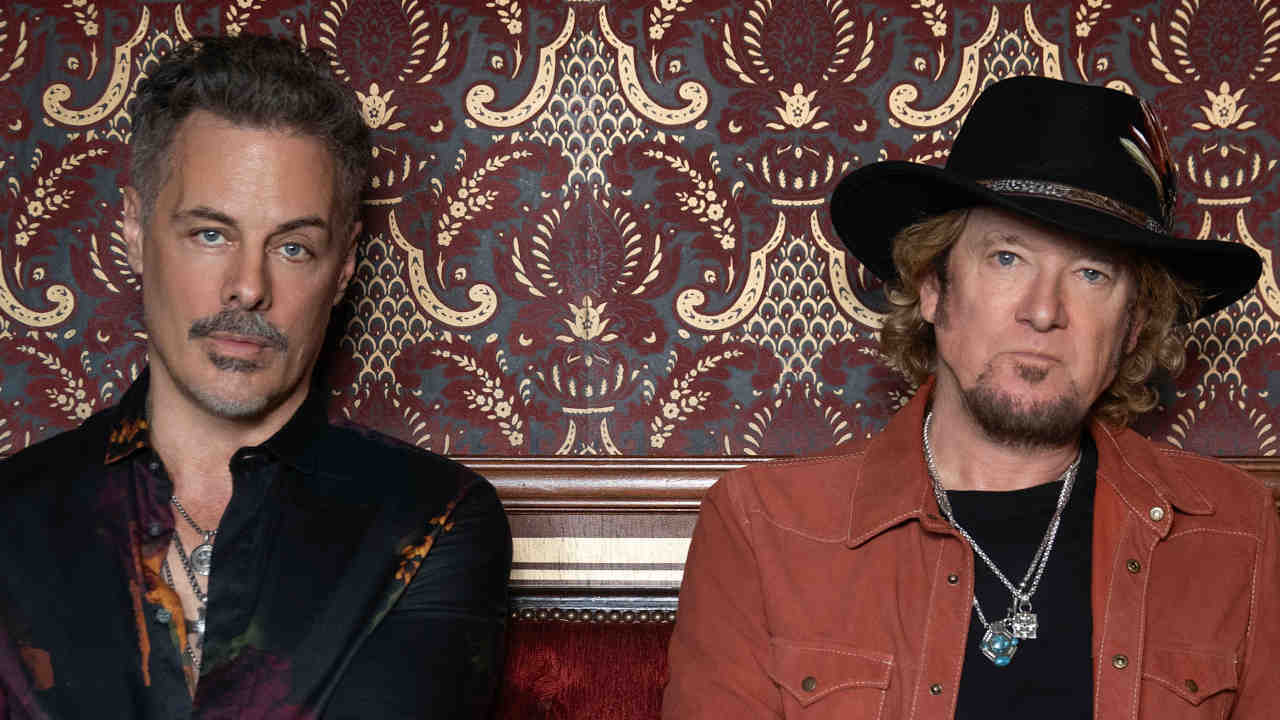
Select the newsletters you’d like to receive. Then, add your email to sign up.
You are now subscribed
Your newsletter sign-up was successful
Want to add more newsletters?

Every Friday
Louder
Louder’s weekly newsletter is jam-packed with the team’s personal highlights from the last seven days, including features, breaking news, reviews and tons of juicy exclusives from the world of alternative music.

Every Friday
Classic Rock
The Classic Rock newsletter is an essential read for the discerning rock fan. Every week we bring you the news, reviews and the very best features and interviews from our extensive archive. Written by rock fans for rock fans.

Every Friday
Metal Hammer
For the last four decades Metal Hammer has been the world’s greatest metal magazine. Created by metalheads for metalheads, ‘Hammer takes you behind the scenes, closer to the action, and nearer to the bands that you love the most.

Every Friday
Prog
The Prog newsletter brings you the very best of Prog Magazine and our website, every Friday. We'll deliver you the very latest news from the Prog universe, informative features and archive material from Prog’s impressive vault.
When Richie Kotzen was 12 years old, he had two baseball T-shirts that he would wear to school. One was a Black Sabbath shirt with an image of the Grim Reaper holding a crystal ball and the number 666 on the front, the other was an Iron Maiden The Number Of The Beast shirt.
“I was a Maiden fanatic,” he says, some 43 years later. “When I’d wake up for school, I’d put that record on and get dressed. It would be [solemnly intoning the intro to TNOTB’s title track] ‘Woe to you, oh earth and sea…’ echoing around the house. Luckily my parents were cool with it. So this whole thing with Adrian, sometimes I gotta smack myself around the back of the head to realise I’m not dreaming.”
Adrian is Adrian Smith, longtime Iron Maiden guitarist and one of Kotzen’s childhood heroes. For the past few years the two men have been partners in Smith/Kotzen. It’s a chance for the former to step outside the musical boundaries of the day job, and for both of them to show off their talent as singers as well as guitarists. Their second album, Black Light/White Noise, is a bluesy, soulful modern rock record with a charge of electricity running through it.
They’re not quite the Odd Couple, but they are an unlikely pairing. Smith is a 68-year-old Londoner, a veteran of one of the world’s biggest metal bands. Kotzen, 12 years younger, is a former teenage guitar prodigy who emerged in the late 80s as part of American label Shrapnel Records’ stable of shredders. Smith is friendly and modest, not afraid to talk about his insecurities as a musician. Kotzen is talkative and confident, with a brilliantly manic cackle. Smith is an avid angler, Kotzen is… well, not so much.
“I’ve watched Adrian fish from the shore, and I get the impression that Adrian does his best work alone. I don’t think he wants me sitting in the boat next to him, talking his ear off while he’s casting a line,” says Kotzen, the UN levels of diplomacy not quite disguising the suspicion that he’d rather gnaw off his own toes than step into a pair of waders.
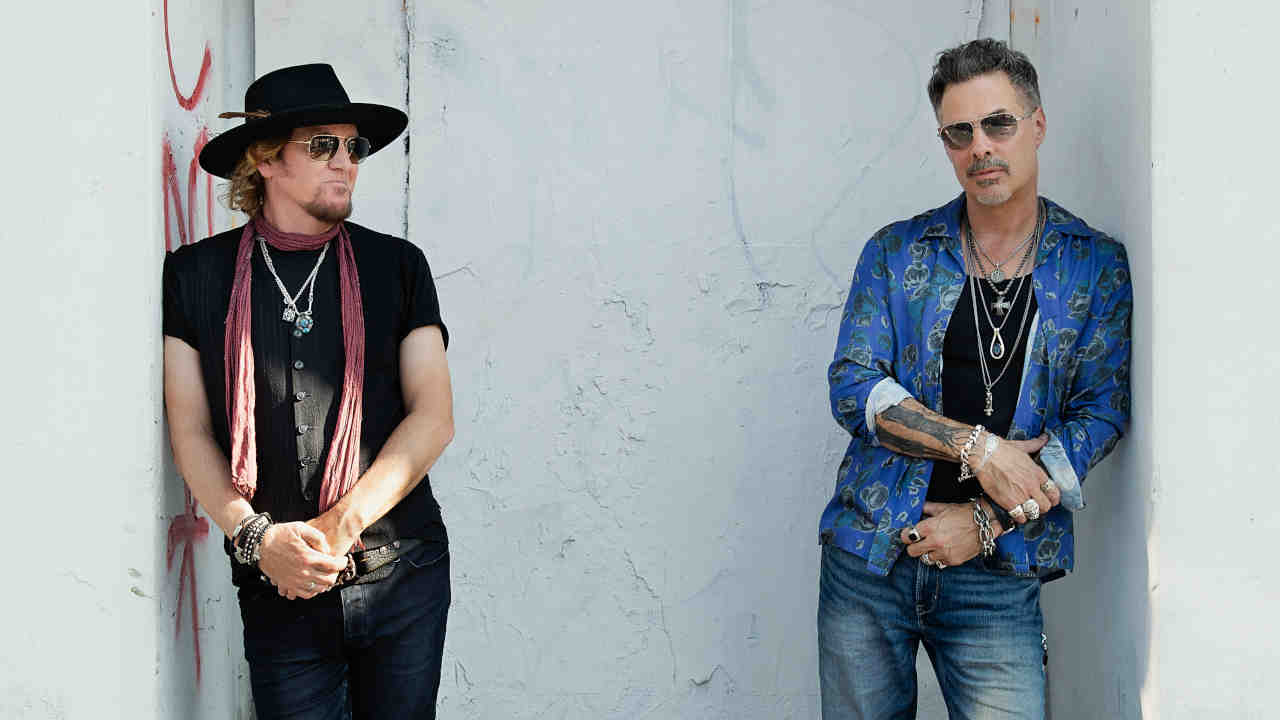
But they have more in common than what separates them. Both men are crack guitarists, obviously, but both have great, soulful voices too: Smith’s smoky and restrained, Kotzen’s powerful and acrobatic. It’s a combination that works well, if Black Light/White Noise is anything to go by.
“Having two guitarists could go horribly wrong,” says Smith, “but it’s about chemistry and personality.”
Sign up below to get the latest from Classic Rock, plus exclusive special offers, direct to your inbox!
They didn’t meet so much as stumble into each other’s orbit. Kotzen was hanging out at swanky Hollywood hotel the Sunset Marquis a decade or so ago when he was introduced to a woman who turned out to be Smith’s wife Nathalie, a sometime LA resident. Introductions were made, and Kotzen was invited to one of the get-togethers the Smiths would throw.
“Most of my friends are musicians,” says Smith. “The first party, there was Richie, Taylor Hawkins, and Rob Trujillo from Metallica, having a few drinks and talking. I said: ‘Come and have a look at my music room.’ So we went in there and just started playing – Bad Company, Stevie Ray Vaughan…”
Smith and Kotzen would jam whenever they could, but it came from Nathalie Smith.
“Adrian’s wife was the one,” says Kotzen. “She said: ‘You guys need to get together and try to write a few songs.’ And that’s what we did. And the people we played them for liked them. They said keep going. So we did.”
Many of those early songs were on the pair’s 2021 self-titled debut album and the subsequent four-track EP Better Days. Kotzen insists that there were no ambitions beyond just making music they like.
“Expectations are a bad thing,” he says. “When you do something with the attitude ‘I expect to get this out of it’, you’re doing it for the wrong reasons. I wanted nothing from it, but now it exists, and I like the fact people get to hear it.”
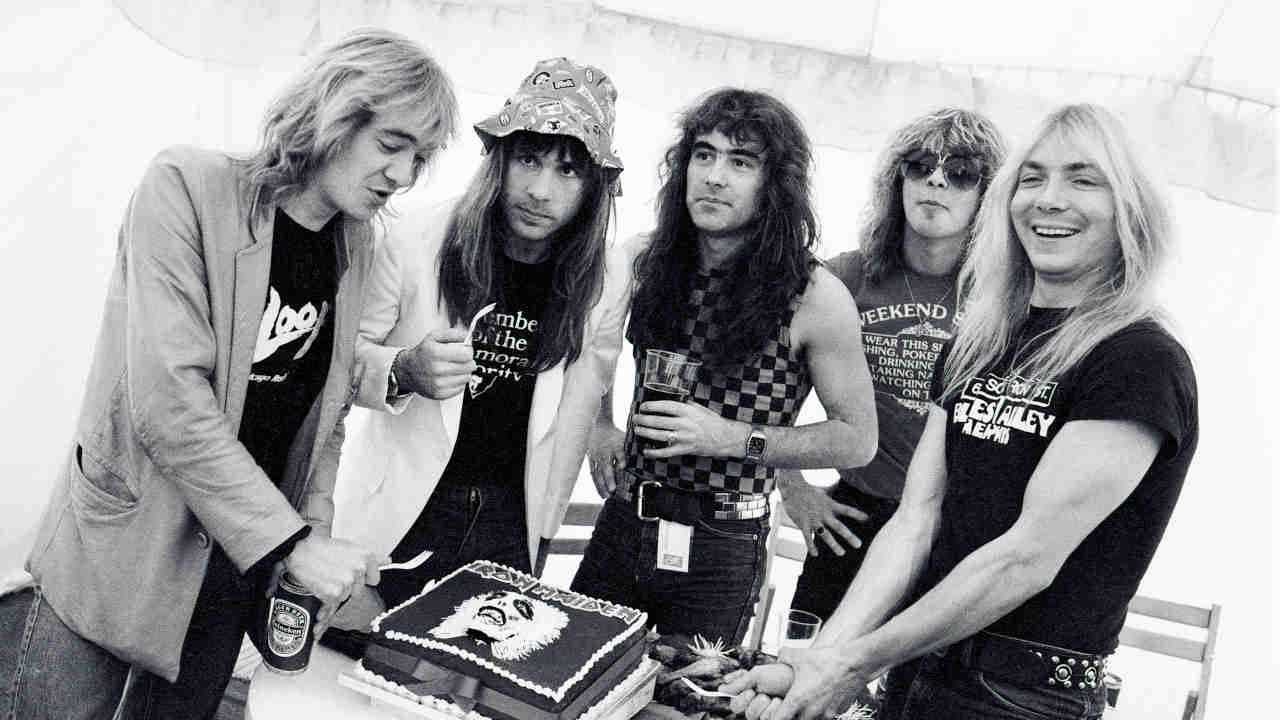
Adrian Smith was surrounded by music long before he joined Iron Maiden. His mother played piano and his dad used to sing and play banjo and mouth organ. “We’d always have sing-songs,” he says. Like any kid growing up in the 60s, The Beatles soundtracked his childhood. “I had the Beatles wig,” he says. “I used to jump up on the table and pretend I was John Lennon.”
His young mind was rewired by the wave of heavy rock bands that emerged in the late 60s and early 70s. “I heard Deep Purple and Sabbath, and it was life-changing,” he says. But he didn’t pick up a guitar until his mid-teens, and even then it was to avoid having to follow his dad into the painting and decorating trade.
He joined his first band, eventually christened Urchin, alongside his friend and future Iron Maiden bandmate Dave Murray.
“I wanted to get in with Dave, so I said: ‘I’ll sing,’” he says now. “I had no idea if I could sing or not, but I did it, and I learned to play guitar as I went along. I was terrified when I first went on stage, but I thought: ‘If this is what you want to do, mate, you’d better get your arse up there.’”
Smith put in the legwork with Urchin, playing gigs to a handful of people and earning 25 quid a pop. They were hardworking but largely unsuccessful. Not that it mattered. “As long as we had money for beer and food we were happy,” he says.
Everything changed for Smith in 1980 when his old mate Dave Murray invited him to join Iron Maiden. Six thousand miles away, Richie Kotzen had heard about this exciting young British metal band, and was all over them.
“My first rock concert was Iron Maiden,” he says. “Number Of The Beast, Piece Of Mind, backtracking to Killers… I was a massive fan.”
Unlike the largely self-taught Smith, the American had his first guitar lesson when he was seven. But like his bandmate, Kotzen started out as a singer and a guitarist. “I was always someone who wrote music with vocals,” he says.
That changed when he signed to San Francisco-based shred-guitar label Shrapnel when he was 19. “I was this hotshot guitar kid from the Philadelphia/New Jersey area,” he recalls, “and I realised there was this label putting out guitar players, and every guitar player that ended up on the label was really celebrated. So I started writing and recording instrumental music to get a record deal with Shrapnel. After I made that first record [self-titled, in 1989] I realised: ‘Now I’m in the game, I don’t really like instrumental music much.’ So I went back to singing, and started taking that seriously.”
Vocals or not, Kotzen was part of a generation of young shred guitarists either revolutionising the instrument or simply wanking off in public (“Hey!” he says mock-indignantly at the suggestion it’s the latter). For Smith, the shredders represented something different.
“I found it intimidating,” he admits. “Guys like Richie and Tony MacAlpine and Blues Saraceno, they’re way beyond you technically. But I’ve always been like that. I remember Maiden’s manager sitting down with us in the mid-eighties and saying: ‘We’re going to tour Europe this year. Michael Schenker’s opening for us.’ I was like: [alarmed] ‘Jesus. Really? I’ve got to go on after Michael Schenker?!’ That caused me a few sleepless nights.”
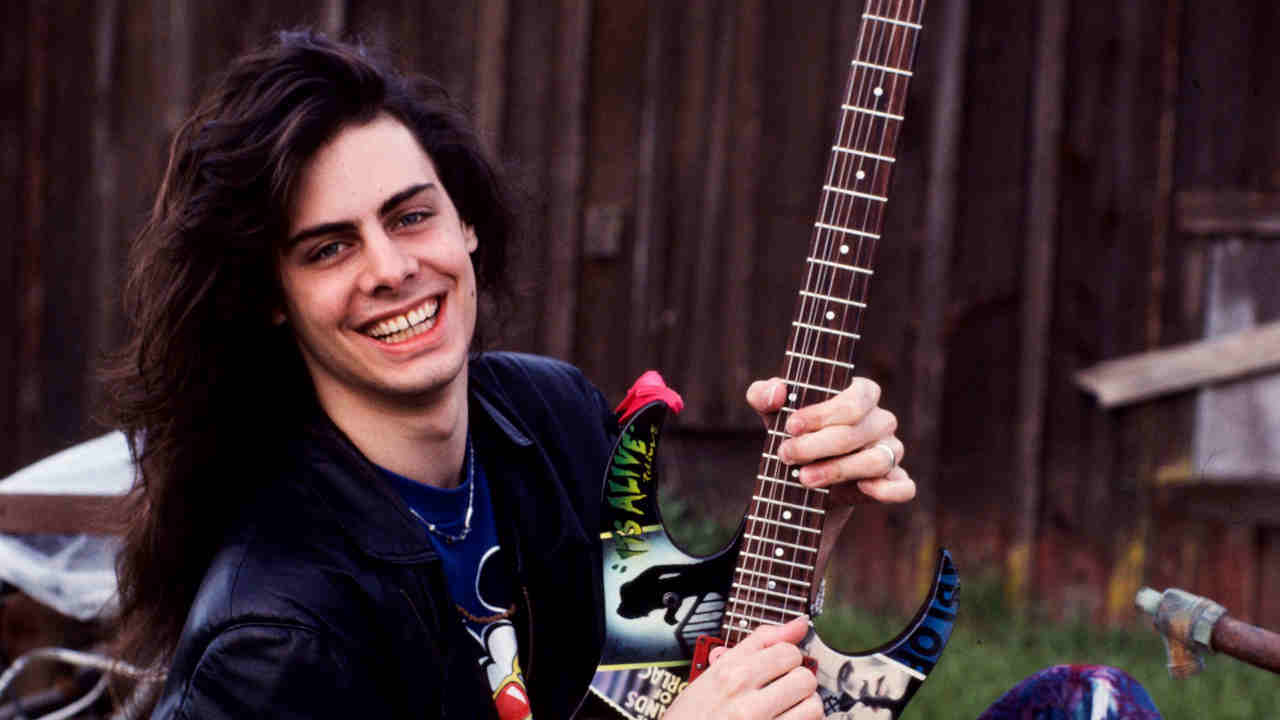
Both Smith and Kotzen have subsequently taken very different but similarly winding paths to get to this point. Smith quit Maiden in 1989 to focus on his own band, Adrian Smith And Project (in which he once again took on the vocals) and, later, Psycho Motel, before rejoining Maiden at the end of the 90s. Kotzen did a two-year stretch in Poison in the early 90s, and replaced fellow Shrapnel refugee Paul Gilbert in hard rock survivors Mr. Big around the turn of the millennium. He’s released a steady stream of albums as both a solo artist and, more recently, frontman with hard rock supergroup The Winery Dogs.
A decade or so may separate them in age, but Smith and Kotzen are the product of the same pre-internet era. White Noise, the first single from the new album, is a blazing rocker that takes a dim view of certain aspects of modern technology. ‘Late in the evening, I’m watchin’ my feed, I’m fillin’ my eyes with nothin’ but greed,’ Smith howls. ‘The frequency cracking drives me out of my head, loosely distracted by all they said,’ roars Kotzen. It’s a great song, but they sound like a couple of grumpy Victorian gentlemen shaking their fists at a new-fangled motor car as it splutters past.
“It’s the modern way of life,” Smith says of the song’s subject. “People on their mobiles, people spending hours and hours on the internet, getting bombarded with this information. It’s kind of like brainwashing.”
That’s ironic, given that the internet has become home to the modern guitar hero. Where it used to be albums and live shows that gave musicians of Smith and Kotzen’s generation a platform to display their talents, these days Instagram is full of dazzling young hotshots doing things on guitar that their forebears could only dream of or couldn’t even imagine.
“They’re at a level that is far, far beyond where I was as a teenager,” says Kotzen. “It’s incredible to watch. Back in the old days, to learn a lick you had to listen to a record over and over, putting your finger on it and playing it back. Now I can watch George Benson play a lick a hundred times on YouTube and work out what he’s doing.”
Do you miss the romance of the way it used to be? He laughs loudly.
“The human nature is to romanticise the struggle,” he says. “My attitude is fuck the struggle, let me get there before anybody else.”
Technology’s relentless forward march can’t change everything. A live show is still a live show, even if Smith/Kotzen’s own debut run of shows, in 2022, gave at least one of them the fear.
“I had anxiety,” says Smith. “I hadn’t sung on stage for twenty years, since I had my solo projects in the 1990s. But I just had to get up there and do it. And at least I had someone to share vocals with. Carrying a whole show on your own is hard.”
Given their individual success – Smith as guitarist with Iron Maiden, Kotzen with various solo and band projects on the go at any one time – neither of them needs to do this. But they do it all the same.
“What makes this work is that it’s truly authentic,” says Kotzen. “There’s nothing here that’s forced or being done with any sort of agenda.”
“Hopefully this’ll grow and get out to more people,” Smith adds. “And if it doesn’t happen it’s not the end of the world. We’ll still do it because we enjoy it.”
Black Light, White Noise is out now via BMG.
Dave Everley has been writing about and occasionally humming along to music since the early 90s. During that time, he has been Deputy Editor on Kerrang! and Classic Rock, Associate Editor on Q magazine and staff writer/tea boy on Raw, not necessarily in that order. He has written for Metal Hammer, Louder, Prog, the Observer, Select, Mojo, the Evening Standard and the totally legendary Ultrakill. He is still waiting for Billy Gibbons to send him a bottle of hot sauce he was promised several years ago.


